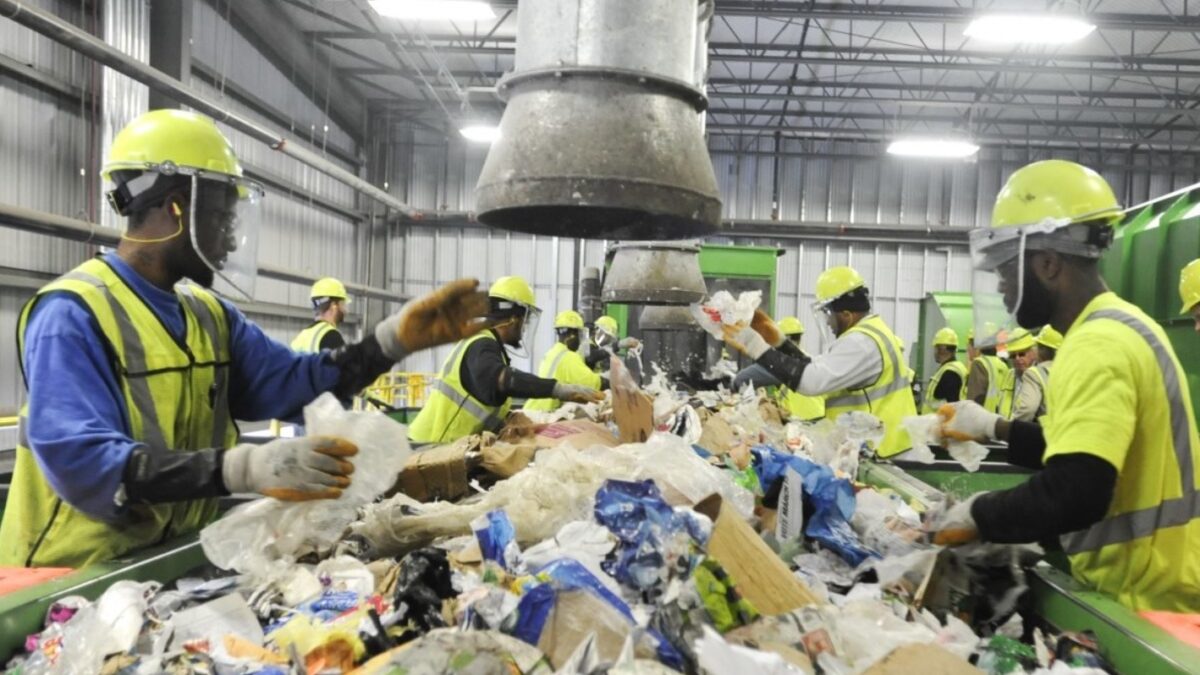Table of Contents
Introduction
In today’s fast-evolving world, effective waste management has become more essential than ever. With the growing environmental crisis, optimizing recycling processes not only supports sustainability but also turns waste into valuable resources. Enter ChatGPT, an innovative AI tool that is transforming the way we approach and implement waste management strategies. This article explores how ChatGPT can enhance recycling processes, contributing to a more sustainable future.
Understanding the Basics of Waste Management
Waste management covers the collection, transportation, processing, and disposal of waste materials. But have you ever wondered how advanced technologies could redefine this field? Traditionally, these processes have depended heavily on manual labor and standardized protocols. However, with technologies like ChatGPT, we can now improve efficiency and accuracy in ways we might not expect.
The Role of Technology in Recycling
Technology is at the forefront of transforming waste management. Innovations like AI and machine learning are accelerating recycling processes, making them faster and more efficient. So, how does ChatGPT fit into this? By offering predictive insights and automating tasks, ChatGPT assists in decision-making and enhances operational efficiency within recycling facilities.
You May Also Like: Transforming E-Learning Platforms: Content Creation Powered by GPT
How ChatGPT Optimizes Recycling Processes
Enhanced Sorting and Categorization
One of the biggest challenges in recycling is sorting and categorizing recyclables. ChatGPT can help by providing precise guidelines and strategies for waste segregation. Imagine the impact of streamlining such a labor-intensive process.
- Automated Sorting Suggestions: ChatGPT analyzes data to recommend the best sorting methods, reducing human error and increasing throughput.
- Real-Time Adjustments: With ChatGPT, facilities can make on-the-fly adjustments to sorting processes, optimizing efficiency.
Data-Driven Insights for Better Decision-Making
Another key aspect is the ability to make informed, effective decisions. ChatGPT’s data-driven insights enable more actionable decisions, resulting in better recycling strategies.
- Predictive Analytics: ChatGPT uses predictive analytics to forecast recycling trends, allowing proactive adjustments.
- Waste Composition Analysis: It provides detailed reports on waste composition, helping facilities focus on the most recyclable materials.
Improved Communication and Customer Engagement
ChatGPT can also enhance communication with various stakeholders, from government agencies to recycling companies and the public.
- Efficient Communication Tools: It can be used to develop chatbots that provide instant responses to customer queries, improving user experience.
- Educational Outreach: ChatGPT helps foster a more informed community by offering information on proper recycling methods and environmental impact.
Challenges and Considerations
While integrating ChatGPT into waste management is promising, there are challenges to consider. Are we maximizing AI’s potential while ensuring ethical data management?
- Data Privacy: Ensuring the confidentiality and security of data used by ChatGPT is critical.
- AI Training and Accuracy: Ongoing training and updates to AI models are necessary to ensure continued effectiveness.
Conclusion: Embracing the Future of Waste Management
As explored, ChatGPT has the potential to significantly enhance recycling processes in several ways. By optimizing sorting, providing actionable insights, and improving communication, ChatGPT takes waste management to the next level.
Waste Management: Optimizing Recycling Processes with ChatGPT not only charts a path toward a sustainable future but also sparks innovation in an industry ripe for change. What are your thoughts on embracing AI in sustainability efforts? Share your ideas in the comments, and don’t forget to share this article with others interested in how AI can revolutionize environmental efforts.
With these advances, the future of waste management looks promising. As we continue to develop and integrate these technologies, the journey toward a cleaner and more sustainable planet becomes ever more achievable.





